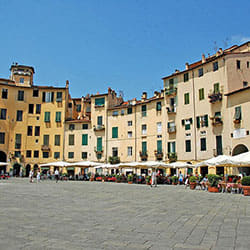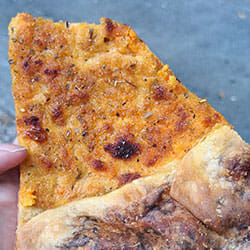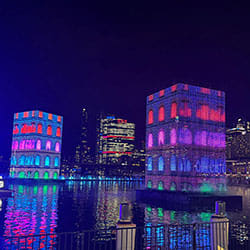
As a freelance musician, I live a rather unstructured life—and sometimes get called to perform at the last minute as an alternate when someone is out sick. It’s not uncommon for me to wake up thinking I have the whole day to take it easy and suddenly get a call begging me to come in as soon as possible to sub for someone. I barely grab breakfast before dashing out to spend an entire day in completely chaotic conditions that are nothing like what I had imagined the day would be.
It also doesn’t help that I’m a rather disorganized person in general, so to be honest I’m not that great at managing my food. I can’t even count the number of times I’ve watched the food in my fridge wilt away in sadness waiting for me to eat it… I’ve definitely got some pretty bad habits.
What’s even worse is that although I mostly eat Italian-style food, I’ll sometimes get a craving for Japanese or some other ethnic food and run out and buy all the seasonings and special ingredients at once. Now I’ve got such a broad range of stuff that I’m only drifting farther and farther away from the “use what you buy” mindset.
My neighborhood supermarket sells food that’s about to expire at a discount, and I’ve tried buying it—maybe because I don’t want to see it go to waste, or because I want to atone for all the food I’ve thrown out over the years. But some of it looked like I’d get so sick from eating it that I’d be writhing in pain, or an awful smell would jump out at me the second I opened the package, so I’d close it with a groan and that would be it. Instead of the supermarket throwing it out, I’d now paid them to throw it out for them.
Incidentally, the Italian chef Massimo Bottura, considered by many to be the best in the world, takes food waste very seriously and has had some tremendous successes with it. He’s made headlines with Refettorio Ambrosiano, a community kitchen he founded adjacent to a church. The theme of the 2015 World Expo in Milan was “Feeding the Planet, Energy for Life.” Inspired by the clever reuse of the large amounts of leftover food from the eateries at the Expo, Bottura began feeding the poor dishes prepared using recipes from world-class chefs for free. Today, the project has spread to eight different countries in cities like Paris, London, and Rio de Janeiro. There are plans to open one in Tokyo as well, but everything is delayed due to unforeseen problems and costs associated with the pandemic and hosting the Olympics, which all seemed to hit Japan at once.
As you’d see if you peeked in your refrigerator, surplus food is usually a bunch of milk and bread—it’s generally not beautiful, delicious, convenient ingredients that are easy to prepare. And that’s the same surplus food that arrives at Refettorio Ambrosiano. It’s a testament to the skill and ingenuity of the chefs that they’re able to make something amazing out of it. As for the people who eat at the community kitchen, many are deeply moved by being able to eat food prepared so carefully—most likely for the first time in their lives. Although I did see one person in an interview who, when presented with the common fine dining experience of getting just a tiny amount of beautifully arranged food, said that despite the gorgeous presentation, they would have liked to eat a lot more. I couldn’t help but smile!






























































